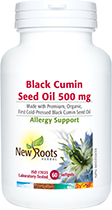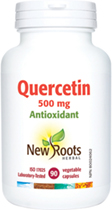Blowin’ in the Wind—Natural Relief from Airborne Allergens
For many of us, winter activity revolves around making enough visits to the health club to look “pool-side” presentable for our winter getaway. Spring weather then paves the way for cyclists, runners, boaters, gardeners, and even lovers that crave the great outdoors.
Wait a minute! The spring, summer and fall months also mark the release of massive amounts of pollen from trees, grasses, and the notorious hay-fever culprit, ragweed. With approximately twenty-five percent of Canadians having some form of airborne allergy, it’s worth exploring ways to coexist.
Pollen release occurs mainly between dawn and late morning, so avoiding the outdoor exposure between roughly 5 and 10 a.m. is recommended. Dry, windy weather tends to stir up atmospheric pollen; conversely, rainy weather tends to suppress pollen counts. An allergic reaction, or histamine response, is a complex chain of events where the immune system perceives a threat. When pollen is inhaled, it passes through the lungs into the bloodstream; this alerts white blood cells to produce antibodies called immunoglobulins E (IgE). These antibodies then trigger the release of histamine and serotonin from specialized storage cells (mast cells and basophils) to cause the common symptoms of sneezing, itching, runny nose, and watery eyes.
So, if sleeping in or “singing in the rain” doesn’t appeal to you, consider a tandem of natural health products you can depend on long-term without the side effects or risk of addiction inherent with many over-the-counter antihistamines. Black cumin seed oil and quercetin bioflavonoids span a broad therapeutic range as a unique strategy to combat seasonal allergies.
Black cumin seed oil has a unique fatty acid profile that includes naturally occurring linoleic acid, which stabilizes cell membranes to exert potent antihistamine action. It also serves as a building block for production of prostaglandins, the hormone like mediators of the inflammatory response.
Quercetin is among the group of plant pigments called flavonoids. These potent compounds strengthen the membranes of specialized cells (mast and basophil) to prevent the release of histamines. Histamines are the cause of common allergy symptoms that include sneezing, itching, runny nose, and watery eyes.
These beneficial compounds are naturally occurring for ease of assimilation to quench your body with the nutrients it requires to enjoy an active lifestyle—after all, it’s in our nature!
Allergies are difficult to diagnose and subsequently manage, take control of your health with black cumin seed oil and quercetin.
 Gordon Raza, BSc
Gordon Raza, BSc
As the technical writer for Flourish, Gord shares his
unique perspective on natural health products, nutrition,
and active living.

 Stores
Stores

